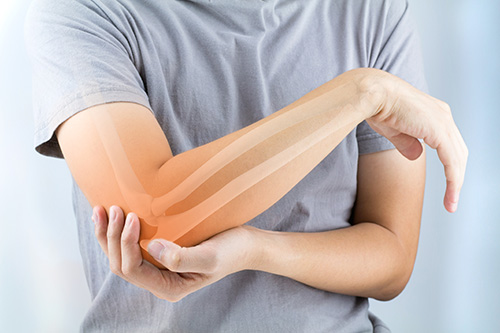Fracture fact: 1 in 2 women over the age of 50 will have a fracture caused by osteoporosis in her lifetime, according to the International Osteoporosis Foundation.
It’s true that older people are more prone to fractures. But even women in their 50’s can break bones due to osteoporosis.
If you have osteoporosis, it’s important to care for your bones. But first, it’s important to understand what osteoporosis is, and take a simple test to find out if you are at risk.
Osteoporosis can affect women as young as age 50. It’s a progressive disease that lowers the density of bones over time, making them weaker and more likely to fracture. Even a fragility fracture, which is when a bone breaks from simply falling from a standing height or lower, can seriously impact your day-to-day life. Once you’ve had a fragility fracture, your risk of having another increases. That first fracture should be your cue to talk with a board-certified orthopedic physician about treatment options that might lower your risk of fracture.
Osteoporosis is most commonly called a “silent disease” because you can’t actually feel bone loss. You may not realize you have osteoporosis until a strain or fall causes a bone to break. Measuring your bone mineral density, or BMD, is the best way to know if you have osteoporosis and how much you are at risk of fracture.
Taking calcium and vitamin D and exercising can help keep bones strong, but may not be enough when it comes to treating osteoporosis in postmenopausal women. Taking vitamins and exercising are important from a young age for building bone strength. Normally, your body breaks down old bone and replaces it with new, healthy bone. Estrogen helps regulate this process. However, with the onset of menopause comes the loss of estrogen, causing women to lose more bone that is being replaced.
If you have osteoporosis, talk to your doctor about prescription treatments that may help reduce your risk of fracture. If you’re unsure about your risk of osteoporosis, schedule an appointment with a board-certified orthopedic physician for a simple, non-invasive bone mineral density test.

